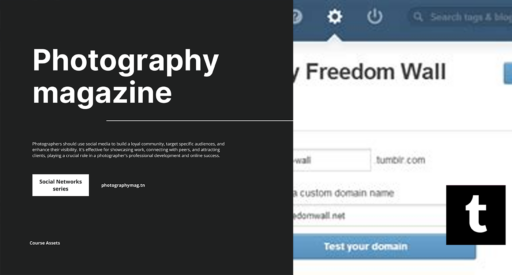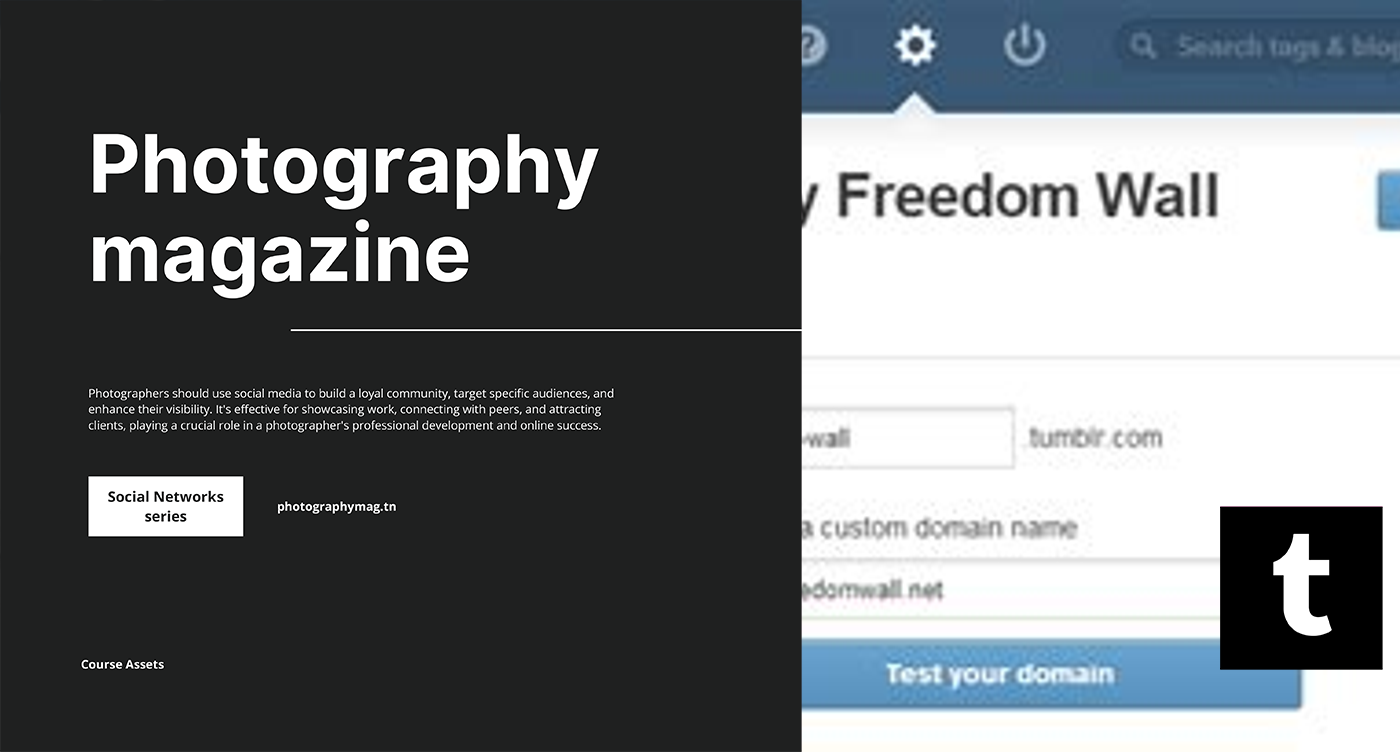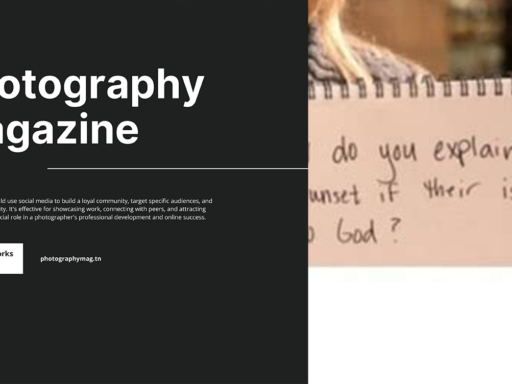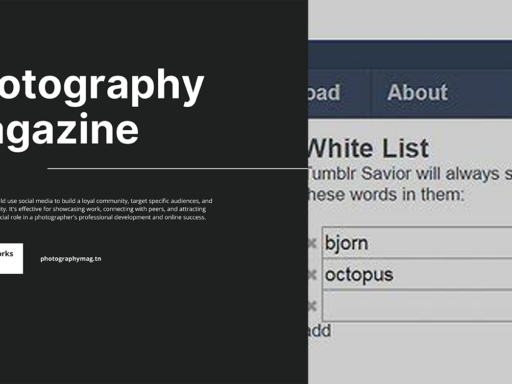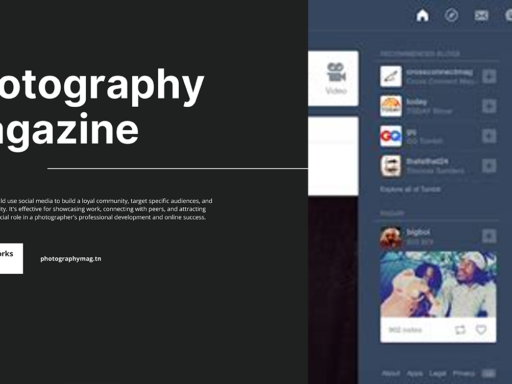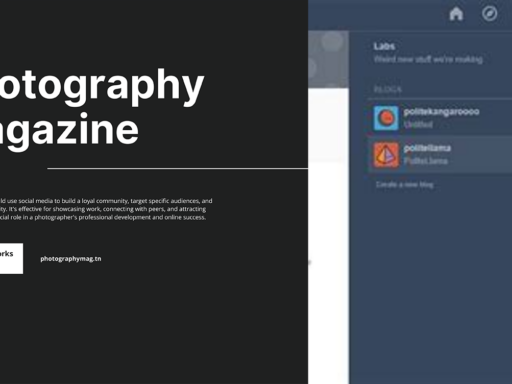The Conundrum of Tumblr and Public Domain
Ah, Tumblr. A vast digital frontier filled with quirky memes, artistic creations, and that post you just can’t resist reblogging at 3 AM. But hold your horses! Before you hit that reblog button, let’s delve into the fascinating world of Tumblr posts and their copyright status. You might be wondering, “Are Tumblr posts public domain?” Well, let’s break it down, shall we?
The Basics of Copyright Law
First off, let’s get a quick refresher on what copyright is. It gives the original creator of a work exclusive rights to its use and distribution. That applies to everything from your niece’s macaroni art to the latest hit single on the charts. So, in the digital landscape, what does this mean for your beloved Tumblr posts?
- Owners vs. Rebloggers: When you stumble upon a striking post that perfectly sums up your existential dread, you’re tempted to share. But here lies the catch: the person who originally posted it holds the copyright, not necessarily the user who reblogged it. Spoiler alert—most people who reblog don’t magically become the owners of the content. It’s like trying to sell someone else’s pizza just because you picked it up off the floor. Gross, and illegal!
- Tumblr’s Little License Twist: When you post something on Tumblr, you’re essentially granting Tumblr a non-exclusive license to use your content. That means Tumblr can display it, share it, and so on, but it doesn’t give anyone else free reign to take it and run. So yes, your original posts are still yours, but don’t step on anyone else’s toes in the adorable dog meme world.
Public Domain: What Is It, and How It Relates to Tumblr
Now, let’s tackle the idea of public domain. When something is in the public domain, it means that anyone can use it without permission, and it’s free to use, share, alter, or even recreate. How delightful! Now, let’s delve into whether Tumblr fits into this glorious category.
- Copyright Expiration: Works enter the public domain when copyright expires. This usually happens after a set period, but since most Tumblr posts are recent, they’re far from being public domain.
- Government Works: Some posts may feature government-produced content, which often is public domain. Your guess about that one uncle’s politically charged post was right! He’s sharing wisdom that belongs to everyone.
- Creative Commons Licenses: Some works on Tumblr may come with Creative Commons licenses which allow for public use under certain conditions. Think of it like a previously-owned car: you can drive it, but you might want to take care of it and ensure you return it as you received it (or better!).
So to wrap your head around it, while some things on Tumblr may be public domain or freely licensed, you can bet most of the content is under copyright. Enjoy the art, share it responsibly, and remember to give credit where it’s due!
Fair Use vs. Copyright Infringement: The Thin Line
You might be thinking, “But what about fair use?” Well, my friend, this magical shield is your best friend as you navigate the labyrinthine inner workings of copyright laws.
Fair use allows people to use content without permission under certain conditions. Think of it like that one friend who eats the last slice of pizza but claims it was ‘fair game’ because they provided entertainment during the meal. So, does that apply to your reblogs and edits? Let’s evaluate:
- Purpose: Is it for educational or non-commercial purposes? You might have a ticket to fair use!
- Nature: If you’re remixing a part of a song for comedic effect, you’re likely on safer ground. Just don’t remix the whole tune and call it a day.
- Amount Used: If you’re quoting just a few lines from a longer work, that tends to fall under fair use. Quoting the entire book? Not so much.
- Effect on the Market: If your use of someone else’s work doesn’t affect the market for the original piece, you might just waltz away with fair use protecting you.
However, tread carefully. Just because a post is relatable doesn’t mean you can snag it without consequence.
If It’s Not Yours, Don’t Use It
Remember folks, plagiarism is bad. Even if you think you’re being clever, taking someone else’s work without proper credit is a no-no. The struggle is real when what seems like harmless sharing can land you in hot water. So how can you play nice in the sandbox of Tumblr?
Tip #1: Always give credit. If you loved a piece enough to repost it, tag the creator! A simple “Content by @OriginalCreator” goes a long way.
Tip #2: Use tools like Google Reverse Image Search to track down the original creator. It’s like a little treasure hunt!
Tip #3: If you’re not sure about the copyright status, simply ask the creator! Most folks on Tumblr appreciate being credited and just might say yes to sharing.
The Content Goldmine: Copyrighted Material
Er, now that we’ve ventured through the recreational fields of fair use, let’s approach a rather daunting reality—most of Tumblr is crawling with copyrighted material. Whether it’s fan art, text posts, GIFs, or gradient backgrounds, the internet is ripe with content made by human beings who deserve respect for their creative spark.
Here’s a quick list of the types of content you’ll see rolling through your Tumblr dashboard:
- Fan Art: Artists pour hours into creating works that breathe fresh life into your favorite shows and characters. So, share, don’t steal. That Batman in a tutu? You better believe someone put love into that masterpiece!
- Photography: Those stunning landscape shots? Yep, copyright-protected. Don’t even think about making a coffee table book out of someone else’s work without permission.
- Original Writing and Poetry: Tumblr writers lay their creative hearts on the line. Credit them, or face the wrath of a thousand “why didn’t you tag me?” messages!
- Memes and GIFs: These ubiquitous bits of joy are often recycled with little regard for the original creator. Stop that! While reworking and remixing is encouraged, consider who made it magic first.
The Land of Business and Monetization
Now, let’s briefly talk about the almighty $$$ in the land of Tumblr. Some users wish to capitalize on their work (good for you!), but that opens up a delightful can of worms. When you start making money, your relationship with copyright becomes even more critical.
- Commercial Use: If your blog becomes an empire and you’re raking in the dough, ensure you’re using your content wisely. Any commercial venture means you’re more susceptible to copyright claims from the original owners.
- Content Partnerships: If you team up with other bloggers, establish rules and agreements about how you’ll use each other’s work. Think of it as a creative handshake, but with way more consequences if someone lets go!
- Licensing Music: Want to throw a party and show off your playlist of the latest hits? Uh, good luck with that! Get the proper licenses or risk serving party vibes with legal warnings on top!
Coping with the Inevitable Meme Wars
And here we are facing the truth: your Tumblr feed is a minefield of ephemeral content, with users reblogging posts left, right, and center like they’re the Grand Reblogging Championship. The law of the internet (and a sprinkle of common sense) dictates that you should avoid flying in the face of copyright rules.
So as you navigate through the whimsy and creativity of Tumblr, remember:
- Your original works are sacred.
- Give credit when using others’ works.
- Understand and respect the bounds of fair use.
Concluding Thoughts: Tumblr’s Creative Playground
Let’s face it—Tumblr is a magnificent space teeming with creativity, laughter, and the occasional existential crisis. You can navigate it prudently while respecting the work of creators everywhere.
So, are Tumblr posts public domain? Well, like our beloved internet memes, the answer depends on context, intentions, and a healthy dose of etiquette.
Dance in the reblogging circus, share the love, credit the creatives, and let the world know that we respect the boundaries of copyright in our quest for internet glory. Keep it fun, keep it respectful, and may your dashboard forever be filled with whimsical delights!
